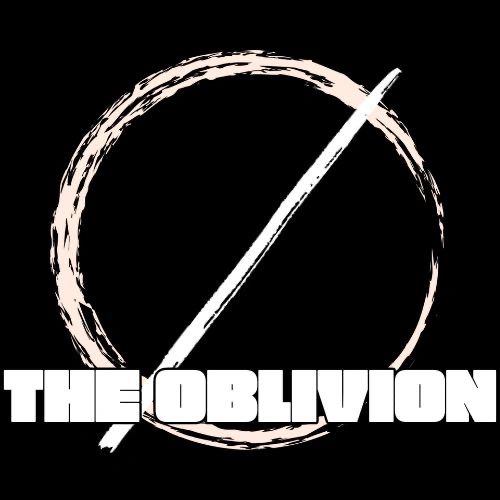Oblivion Age: Unlocking The Secrets Of A Timeless Phenomenon
Oblivion age is a concept that has intrigued scholars, philosophers, and science enthusiasts for centuries. It represents the gradual fading of memories, knowledge, and information over time. This fascinating process affects individuals, societies, and even civilizations. Understanding oblivion age can provide valuable insights into how we preserve knowledge and maintain cultural heritage.
The concept of oblivion age extends beyond the mere loss of memory. It encompasses the erosion of historical records, the disappearance of languages, and the decline of once-great civilizations. This phenomenon raises important questions about the nature of human memory and the ways in which we store and transmit knowledge across generations.
In this comprehensive article, we will delve deep into the world of oblivion age, exploring its causes, effects, and potential solutions. We will examine how technology and modern practices can help mitigate the impact of oblivion age, ensuring that valuable knowledge and cultural heritage are preserved for future generations.
- Pole Vaulter Crotch Olympics
- Koreen Odiney
- Sheryl Lee Ralph Weight Loss
- Wedding Greg Gutfeld
- Silvion Ramsundar
Table of Contents
- What is Oblivion Age?
- Causes of Oblivion Age
- Effects on Individuals
- Societal Impact
- Historical Examples of Oblivion Age
- Technological Solutions
- Strategies for Preservation
- Oblivion Age in Literature
- Psychological Perspective
- Conclusion
What is Oblivion Age?
Oblivion age refers to the gradual decline and eventual disappearance of memories, knowledge, and cultural artifacts over time. This process is influenced by various factors, including natural decay, lack of documentation, and changing societal priorities. Understanding oblivion age is crucial for preserving the collective memory of humanity and ensuring that valuable information is not lost forever.
Definition and Scope
The scope of oblivion age extends beyond individual memory loss. It includes the deterioration of physical records, the fading of oral traditions, and the erosion of cultural practices. This concept has been studied extensively by historians, archaeologists, and cognitive scientists, each offering unique perspectives on its causes and effects.
Causes of Oblivion Age
Several factors contribute to the phenomenon of oblivion age. These include natural disasters, political upheavals, and technological advancements that render older forms of communication obsolete. Additionally, the passage of time itself plays a significant role in the gradual fading of memories and knowledge.
- Tereza Ka%C3%84 Erov%C3%83 Avicii
- Winner Of Season 13 Project Runway
- Tim And Mark Supermarket Sweep
- Verna Heath Channelview Tx
- Mercury Square Uranus Astrology
- Natural Disasters: Earthquakes, floods, and fires can destroy physical records and artifacts.
- Political Changes: Wars and regime changes often lead to the suppression or destruction of cultural heritage.
- Technological Advancements: New technologies can render older methods of communication and storage obsolete.
Effects on Individuals
On a personal level, oblivion age manifests as memory loss and the inability to recall important events or information. This can have significant implications for individual well-being and quality of life. Understanding the neurological processes involved in memory retention can help develop strategies to combat the effects of oblivion age.
Neurological Perspective
Research indicates that the hippocampus, a region of the brain responsible for memory formation, is particularly susceptible to the effects of aging. This can lead to difficulties in recalling past events and forming new memories. Techniques such as cognitive training and lifestyle modifications can help mitigate these effects.
Societal Impact
At the societal level, oblivion age can result in the loss of cultural heritage and historical knowledge. This can have far-reaching consequences, affecting everything from educational curricula to national identities. Efforts to preserve cultural artifacts and historical records are essential for maintaining a connection to the past.
Case Studies
Examples of societies impacted by oblivion age include the fall of the Roman Empire and the decline of the Mayan civilization. In both cases, the loss of knowledge and cultural practices contributed to their eventual collapse. Modern preservation techniques can help prevent similar outcomes in contemporary societies.
Historical Examples of Oblivion Age
Throughout history, numerous civilizations have experienced the effects of oblivion age. The Library of Alexandria, one of the greatest repositories of knowledge in the ancient world, was lost due to a combination of natural disasters and political instability. Similarly, the Rosetta Stone played a crucial role in deciphering Egyptian hieroglyphs, highlighting the importance of preserving linguistic knowledge.
Lessons Learned
These historical examples demonstrate the importance of safeguarding knowledge and cultural heritage. By studying the causes and effects of oblivion age, we can develop strategies to prevent similar losses in the future.
Technological Solutions
Advances in technology offer promising solutions to the challenges posed by oblivion age. Digital archiving, cloud storage, and blockchain technology can help preserve information and ensure its accessibility for future generations. These innovations provide new opportunities for storing and sharing knowledge in ways that were previously unimaginable.
Emerging Technologies
Artificial intelligence and machine learning are increasingly being used to analyze and organize vast amounts of data. These tools can help identify patterns and connections that might otherwise be overlooked, enhancing our ability to preserve and understand complex information.
Strategies for Preservation
Effective preservation strategies require a combination of technological innovation and community engagement. Governments, educational institutions, and private organizations all have a role to play in ensuring that valuable knowledge and cultural heritage are not lost to the ravages of time.
- Community Involvement: Encouraging public participation in preservation efforts can help ensure the sustainability of these initiatives.
- Policy Development: Governments can enact policies to protect cultural heritage and promote the use of modern preservation technologies.
- Education: Incorporating lessons on preservation into school curricula can help raise awareness and inspire future generations to take action.
Oblivion Age in Literature
Literature has long explored the themes of memory, forgetfulness, and the passage of time. Works such as Jorge Luis Borges' "Funes the Memorious" and Haruki Murakami's "1Q84" examine the complex relationship between memory and identity. These literary explorations provide valuable insights into the human experience of oblivion age.
Symbolism and Metaphor
Authors often use symbolism and metaphor to convey the effects of oblivion age. Water, in particular, is a common motif representing the flow of time and the inevitable loss of memories. These literary devices help readers connect with the abstract concept of oblivion age on a personal and emotional level.
Psychological Perspective
From a psychological standpoint, oblivion age is closely linked to the processes of memory formation and retrieval. Understanding these processes can help develop interventions to support memory retention and cognitive function. Research in this area continues to uncover new insights into the nature of human memory and its vulnerabilities.
Therapeutic Approaches
Therapeutic techniques such as cognitive behavioral therapy and mindfulness meditation can help individuals cope with the effects of memory loss. These approaches focus on enhancing cognitive function and improving overall mental well-being, providing valuable tools for combating the challenges posed by oblivion age.
Conclusion
Oblivion age is a complex and multifaceted phenomenon that affects individuals, societies, and civilizations. By understanding its causes and effects, we can develop effective strategies to preserve valuable knowledge and cultural heritage for future generations. This article has explored various aspects of oblivion age, including its historical context, technological solutions, and psychological implications.
We invite you to join the conversation by leaving a comment or sharing this article with others. Together, we can work towards a future where the lessons of the past are not forgotten and the knowledge of humanity is preserved for generations to come. For further reading, explore our other articles on topics related to memory, preservation, and cultural heritage.
- What Sign Is The Grinch
- Pre Med Student Stabs Mom
- Best Rated Wet Dry Vacuums
- Tyrus Kids Ages
- Sheila Bellush Children Now

Music Ageless Oblivion

The Oblivion

Oblivion Dj Max Zerochan Anime Image Board